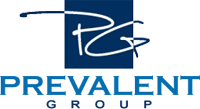Most professionals know that a LinkedIn profile is an absolute necessity. If you’re new to the job market, or you’re just starting to think about looking for new opportunities, it’s probably time to login and take some steps to improve your profile so that it’s searchable for hiring managers and paints a clear picture of your skills and qualifications. If you are looking to improve your LinkedIn profile this year, follow these steps:
One: Update Your Photo
If you don’t have a photo on your profile, if your current photo is outdated, or if it is not a professional headshot, it’s time to make a change. According to LinkedIn’s own data, profiles that include a professional photo get 14 times more views than those without a photo. Getting a professional headshot taken is relatively inexpensive, and the cost of a professional photo can pay for itself tenfold if it helps you land the job of your dreams.
Two: Complete Your Summary
Many people on LinkedIn skip over the summary section, or they fill it out with just one or two sentences. It will be important to take some time and write out a complete summary that paints a picture of who you are as a professional, and the benefits you bring to employers. Your summary is your first introduction to hiring managers and recruiters, and you want them to read it and say, “I want to learn more about this person.”
Three: Craft a Strategic, Searchable Headline
When you’re working on your LinkedIn profile, remember that hiring managers and recruiters will find you through LinkedIn’s search function. If you don’t include keywords in your headline, summary, and profile, you won’t show up in search results. LinkedIn will pre-fill your headline for you if you choose, but it is much more effective to write your own. Include your name, your current job title, any known variations of that job title, and the industry in which you work. For example, data scientists should also include analytics keywords, and business intelligence keywords, since they are all related.
Participate in Groups
LinkedIn Groups are an excellent way to make new connections, expand your network, and establish yourself as an expert in your field. Join relevant industry groups and participate in discussions whenever possible. Always make sure your answers are well thought out and relevant. Groups are not the place to ask about open job positions. Keep your conversations on topic, make valuable and insightful contributions, and always be respectful of the other
me members of the group. Hiring managers and recruiters join these groups to monitor discussions and identify talent, so always present yourself professionally.
Work With a Professional Recruiter
Crafting an effective LinkedIn profile is an art form, and it can be extremely useful to get some outside help. Professional recruiters know the value of a strong online presence, and they can help you craft a profile that will make you more attractive to potential employers.
If you are a professional in sales, marketing, engineering, IT or operations looking for new opportunities,
contact The Prevalent Group today. Our team of
executive recruiters can help match you with a position that aligns with your long-term career goals, and we can work with you to help perfect your LinkedIn profile to help you make a strong first impression on hiring managers.
